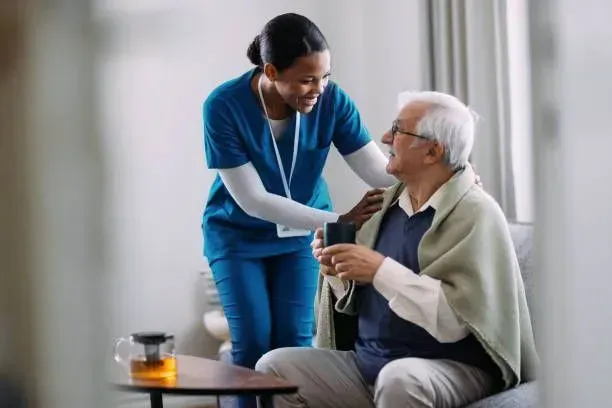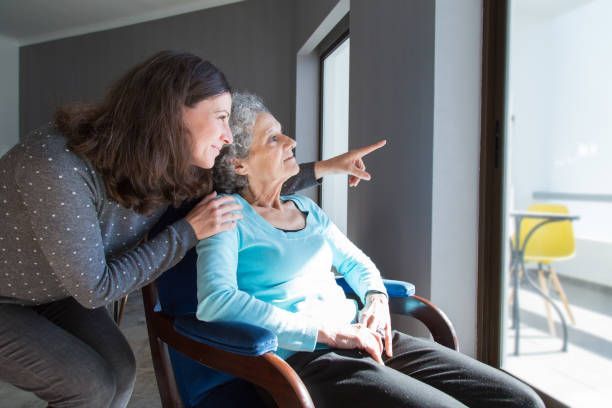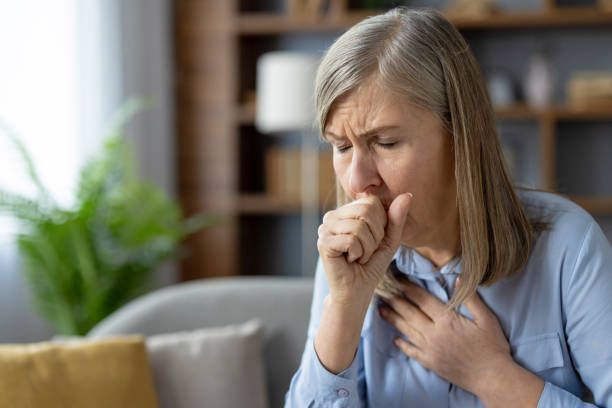What to Do When Elderly Parents Refuse Home Care: A Step-by-Step Guide
What to Do When Elderly Parents Refuse Home Care: A Step-by-Step Guide
Many elderly parents resist and outright refuse in-home care, often due to a deep-seated fear of losing independence, privacy concerns, or a lack of awareness about their own declining abilities. At 7 Day Home Care, we understand that this resistance can be frustrating and emotionally draining for families who only want the best for their loved ones. Seniors may perceive accepting help as an admission of weakness or believe they can manage on their own, even when daily tasks become overwhelming or unsafe. Some fear that bringing in a caregiver signals the first step toward losing control over their lives or being forced into a nursing home. Others worry about cost, unfamiliarity with caregivers, or cultural stigma surrounding receiving assistance. Overcoming this challenge requires patience, open communication, and a strategic approach that emphasizes safety, dignity, and independence rather than limitations. Families can ease this transition by involving their loved ones in the decision-making process, addressing their specific concerns, and starting with small, trial-based care visits.
At 7 Day Home Care, we specialize in working with reluctant seniors, providing compassionate, customized support to help them feel comfortable and in control while ensuring they receive the care they need to age safely in their own homes. 7 Day Home Care provides in-home care services in Manhattan, Queens, Brooklyn, Nassau County, and Suffolk County, New York. To learn more about our home care services, please call 516-408-0034.

How to Convince Elderly Parents to Accept Home Care: Expert Strategies
As seniors age, many experience difficulty with daily activities like cooking, bathing, and managing medications. While home care can provide crucial support, many elderly parents resist accepting help. Their reluctance can stem from pride, fear of losing independence, or distrust of caregivers.
This resistance can be frustrating and emotionally challenging for families. However, understanding the reasons behind their hesitation and using expert-backed strategies can make the transition smoother.
This guide, developed by 7 Day Home Care, provides comprehensive insights into why elderly parents resist home care and how to help them embrace the support they need.
Why Do Seniors Resist Home Care?
Seniors often resist home care services due to a combination of emotional, psychological, and practical concerns. A primary reason is the fear of losing independence, as accepting help may feel like relinquishing control over their lives and routines. Many also experience discomfort with the idea of a stranger entering their home, especially when assistance involves personal tasks like bathing or dressing, which can feel invasive. Financial concerns are another common barrier, as some seniors are hesitant to spend money on services they perceive as unnecessary. Additionally, denial about their declining abilities or fear of change—such as adjusting to new routines or admitting vulnerability—can make them resistant to accepting help. These factors are often compounded by feelings of shame, grief, or fear of becoming a burden to others
Common reasons seniors reject home care include:
• Fear of Losing Independence – Many seniors believe accepting home care means they are losing control over their lives.
• Denial of Need – Some seniors don’t recognize their declining abilities or insist they can manage on their own.
• Privacy Concerns – Inviting a caregiver into their home can feel like an invasion of personal space.
• Negative Past Experiences – A previous poor experience with a caregiver can create reluctance to try again.
• Cost Concerns – Many elderly parents worry about the financial burden of home care services.
• Cultural or Personal Stigma – Some cultures view receiving care as a sign of weakness or failure.
Understanding these concerns is the first step toward finding a compassionate and effective solution.
How to Talk to an Elderly Parent About Home Care
1. Start Early & Have Open Conversations
Discussing home care services with elderly loved ones before it becomes a crisis is essential to maintaining their independence and quality of life. Approach the conversation with empathy, expressing your concerns as your own, such as saying, ‘I’ve been worried about you and want to ensure you have all the support you need."
• Bring up the topic gently in casual conversations.
• Use personal anecdotes or stories about friends who benefited from home care.
• Ask open-ended questions like, “How do you feel about having extra help with household tasks?”
2. Frame Home Care as a Benefit, Not a Burden
Rather than focusing on what a senior can’t do, emphasize how home care helps maintain their independence.
For example, instead of saying:
❌ “You can’t manage on your own anymore.”
Try:
✅ “A caregiver can help with the little things so you can stay in your home longer and keep your independence.”
3. Address Specific Concerns About Home Care
If cost is a concern, explain that home care may be covered by long-term care insurance, Medicaid, or veterans’ benefits. If privacy is an issue, discuss ways to set boundaries, such as keeping caregiving hours limited to specific times of the day.
4. Involve a Trusted Third Party
When working with an elderly parent resistant to home care, involving a trusted third party like a doctor, clergy member, or close family friend can help ease the process. These individuals often carry authority and emotional neutrality that can defuse tension and validate the need for support. For example, a physician can frame home care as a health necessity rather than a loss of independence, while a family friend might share personal stories to normalize the transition. Engaging such figures allows your parent to hear the message from someone they trust, rather than feeling pressured by their child.
5. Start Small & Offer Trial Periods
Suggest starting with a few hours a week instead of full-time care. This helps seniors get used to the idea without feeling overwhelmed.
What to Do When an Elderly Parent Refuses Home Care?
Even with a thoughtful approach, resistance may continue. If your loved one refuses help, try the following strategies:
1. Identify & Address Root Fears
If privacy is the issue, offer to let them interview and select a caregiver. If they fear losing independence, explain that home care can actually help them stay at home longer rather than moving to assisted living.
2. Focus on Safety
When communicating with elderly parents resistant to home care services, prioritize safety while maintaining empathy and respect. Begin conversations calmly and choose a time when both parties are relaxed, avoiding emotionally charged moments. Use simple, clear language and avoid phrases that sound controlling, like “you need to” or “you should,” as these can trigger defensiveness. Instead, frame discussions collaboratively by asking how you can work together to ensure their safety and well-being. Validate their feelings and emphasize the benefits of care, such as enhanced independence and quality of life, rather than focusing on losses. Be patient and persistent, understanding that these conversations often require multiple attempts to build trust and foster acceptance.
Point out risks such as:
• Increased falls due to mobility issues
• Medication mismanagement leading to hospitalizations
• Poor nutrition from difficulty cooking meals
3. Make It About Someone Else
Sometimes, seniors are more willing to accept help if it seems like they are helping you. Try saying:
✅ “It would give me peace of mind to know you have someone checking in on you.”
✅ “I worry about you falling when I’m not around—having someone there would ease my mind.”
4. Use Medical Recommendations
If your loved one trusts their doctor, ask the doctor to recommend home care as part of a care plan. Many seniors are more likely to accept help when it comes from a medical professional.
5. Be Patient & Revisit the Conversation
If they say no, give them time. Wait a few weeks and bring it up again in a different way. Persistence, patience, and small steps often lead to success.
How to Choose the Right Home Care Agency
Once your loved one agrees to home care, choosing the right agency is crucial.
What to Look for in a Home Care Provider?
• Licensing & Certification – Ensure the agency is licensed and certified by the state health department.
• Background Checks – Ask if caregivers undergo thorough screening and training.
• Flexible Care Plans – Look for an agency that customizes care based on individual needs.
• Experience with Seniors – Check if the agency specializes in elder care and chronic conditions.
7 Day Home Care meets all these criteria and more, providing compassionate, top-rated home care services across New York City, Long Island, and surrounding areas.
Real Stories: Seniors Who Embraced Home Care
Many families have successfully helped their elderly loved ones accept home care. Here are a few real examples:
Beverly’s Story: From Resistance to Comfort
Beverly, 83, refused home care, fearing she would lose her privacy. Her daughter convinced her to try a one-month trial with 7 Day Home Care. Within weeks, Beverly grew fond of her caregiver, saying, “I don’t know how I managed before!”
David’s Story: Prioritizing Safety
David, 89, had multiple falls but refused home care. His doctor recommended a part-time caregiver, explaining it would help him stay independent longer. After six months, David admitted, “Having help keeps me safer and more independent than I thought possible.”
Helping an elderly parent accept home care can be challenging, but with patience and the right approach, it is possible. By addressing concerns, using expert-backed strategies, and choosing a reputable provider like 7 Day Home Care, families can ensure their loved ones receive the support they need while maintaining dignity and independence.
If you’re struggling to find the right home care solution, contact 7 Day Home Care today at 516-408-0034 to learn more.
Brian Callahan
7 Day Home Care










